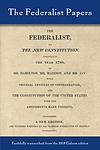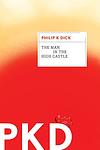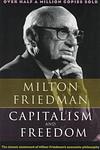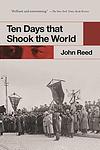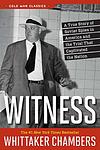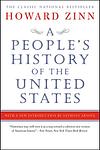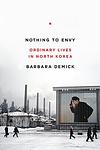The Greatest American "Political Ideologies" Books of All Time
Click to learn how this list is calculated.
This list represents a comprehensive and trusted collection of the greatest books. Developed through a specialized algorithm, it brings together 300 'best of' book lists to form a definitive guide to the world's most acclaimed books. For those interested in how these books are chosen, additional details can be found on the rankings page.
Genres
The "Political Ideologies" category encompasses a diverse collection of books that delve into the broad spectrum of political beliefs, systems, and theories that have shaped human societies throughout history and continue to influence contemporary governance and social structures. This genre offers readers an exploration of the foundational principles, moral values, economic models, and visions for societal organization that underpin various political ideologies, such as liberalism, conservatism, socialism, communism, fascism, and anarchism, among others. It provides critical insights into how these ideologies have been conceptualized, their historical development, key proponents, and the practical implications of their implementation. Through comparative analysis and theoretical discourse, books in this category aim to enhance readers' understanding of the political landscape, encourage critical thinking about governance and policy, and foster informed civic engagement. Whether written by political scientists, philosophers, historians, or activists, these works serve as essential resources for anyone seeking to grasp the complexities of political thought and its impact on the world.
Countries
Date Range
Reading Statistics
Click the button below to see how many of these books you've read!
Download
If you're interested in downloading this list as a CSV file for use in a spreadsheet application, you can easily do so by clicking the button below. Please note that to ensure a manageable file size and faster download, the CSV will include details for only the first 500 books.
Download-
1. Invisible Man by Ralph Ellison
The novel is a poignant exploration of a young African-American man's journey through life, where he grapples with issues of race, identity, and individuality in mid-20th-century America. The protagonist, who remains unnamed throughout the story, considers himself socially invisible due to his race. The narrative follows his experiences from the South to the North, from being a student to a worker, and his involvement in the Brotherhood, a political organization. The book is a profound critique of societal norms and racial prejudice, highlighting the protagonist's struggle to assert his identity in a world that refuses to see him.
-
2. Native Son by Richard Wright
This novel tells the story of Bigger Thomas, a young African-American man living in Chicago's South Side during the 1930s. Bigger's life takes a tragic turn when he accidentally kills a young white woman. The incident leads to his arrest and trial, revealing the deep-seated racial prejudices and injustices prevalent in American society at the time. The narrative explores themes of poverty, systemic racism, fear, and the effects of oppression.
-
3. Fahrenheit 451 by Ray Bradbury
In a dystopian future where books are banned and burned by the government to prevent dissenting ideas, a fireman named Guy Montag, whose job is to burn books, begins to question the society he serves. After a series of events, including meeting a free-thinking teenager and witnessing a woman choosing to die with her books, Montag begins to secretly collect and read books, leading to his eventual rebellion against the oppressive regime. The narrative serves as a critique of censorship, conformity, and the dangers of an illiterate society.
-
4. The Federalist Papers by Alexander Hamilton, James Madison, John Jay
"The Federalist Papers" is a collection of 85 articles and essays written to promote the ratification of the United States Constitution. These works discuss the benefits of a stronger national government, the proposed structure of the government, and the division of powers among its various branches. They also address criticisms of the Constitution and detail the failures of the Articles of Confederation. The papers remain a primary source for interpretation of the U.S. Constitution and the intentions of its framers.
-
5. The Man in the High Castle by Philip K. Dick
Set in an alternate history where the Axis powers won World War II, this novel explores life in a world where the United States is divided into three parts: the Pacific States of America, controlled by Japan; the Rocky Mountain States, a neutral buffer zone; and the United States of America, controlled by Nazi Germany. The story follows several characters, including a jewelry designer, a trade minister, and a German secret agent, as they navigate this dystopian reality. The narrative is further complicated by the existence of a banned novel that depicts an alternate reality where the Allies won the war, causing characters to question their understanding of reality.
-
6. Capitalism and Freedom by Milton Friedman
This book explores the role of competitive capitalism - the organization of the bulk of economic activity through private enterprise operating in a free market - as both a device for achieving economic freedom and a necessary condition for political freedom. The author further examines how freedom could be preserved in a society where the roles and importance of government are ever expanding, and presents his view on topics such as monetary policy, fiscal policy, education, discrimination, and the alleviation of poverty.
-
7. Ten Days That Shook the World by John Reed
This book provides a firsthand account of the Russian Revolution in 1917, specifically focusing on the ten days during which the Bolsheviks seized power. The author, an American journalist, presents a detailed chronicle of the events, people, and emotions during this tumultuous period. His narrative is filled with vivid descriptions and passionate portrayals of the revolutionaries, offering an intimate look into this significant historical event.
-
8. The Crucible by Arthur Miller
Set during the Salem Witch Trials in the late 17th century, this play explores the hysteria, deceit, and religious extremism that plague a small Puritan village in Massachusetts. The protagonist, a flawed but essentially good man, is caught in a web of accusations when young girls in the town start displaying strange behavior and accusing others of witchcraft. The ensuing trials reveal not only the dangers of mass hysteria and false accusations, but also the destructive power of societal pressures and the human capacity for both cruelty and heroism.
-
9. Witness by Whittaker Chambers
"Witness" is a gripping autobiography that chronicles the author's life as a Communist party member, his espionage activities for the Soviet Union, and his eventual renunciation of communism. The book also details his role as the key witness in the 1948 Alger Hiss trial, a high-profile case that had a major impact on American politics during the Cold War. The narrative explores themes of ideology, betrayal, and redemption, and provides a unique perspective on the ideological battles of the 20th century.
-
10. The Big Nowhere by James Ellroy
"The Big Nowhere" is a gripping crime novel set in 1950s Los Angeles, where three protagonists find themselves entangled in a web of corruption, violence, and deceit. As they navigate the dark underbelly of Hollywood and the police force, their lives become intertwined in a dangerous investigation involving murder, organized crime, and political scandal. With a relentless pace and intricate plot twists, the book explores themes of loyalty, ambition, and the blurred lines between good and evil in a city where everyone has something to hide.
-
11. To the Finland Station by Edmund Wilson
This book is a historical narrative that explores the evolution of revolutionary thought, from the French Revolution through Karl Marx's theories to the Russian Revolution. It focuses on the lives and ideas of key figures in radical political thought, including Marx, Engels, Lenin, and Trotsky. The book culminates in the pivotal moment when Lenin arrives at the Finland Station in Petrograd in 1917, marking the start of the Bolshevik Revolution.
-
12. A People's History of the United States by Howard Zinn
This book is a comprehensive overview of American history from the perspective of the marginalized and underrepresented groups, rather than the typical focus on political elites. It covers a wide range of historical events and periods, including the discovery of the continent, the founding of the United States, slavery, the Civil War, and up to the modern era. The book challenges traditional narratives and provides a critical and thought-provoking look at the nation's past.
-
13. Democracy and Leadership by Irving Babbitt
"Democracy and Leadership" is a critical examination of modern democracy, its strengths, and its potential weaknesses. The author delves into the nature of leadership within democratic systems, questioning the effects of populism and mass movements on the quality of leaders. He argues for a balance between individual freedom and societal responsibility, advocating for a more ethical and principled approach to leadership. The book also explores the impact of humanism and romanticism on democratic thought, suggesting that these philosophies can either enhance or undermine the democratic process.
-
14. Lenin's Tomb: The Last Days of the Soviet Empire by David Remnick
This book provides an in-depth account of the final days of the Soviet Union, focusing on the period from 1989 to 1991. It explores the political, economic, and social factors that led to the collapse of the Soviet empire, including the role of key figures such as Mikhail Gorbachev, Boris Yeltsin, and others. The author, a journalist who lived in Moscow during this time, combines historical analysis with personal observations and interviews, offering a unique perspective on this significant period in world history.
-
15. The Age of Jackson by Arthur M. Schlesinger, Jr
This book provides an in-depth historical analysis of the political and social changes during the era of Andrew Jackson's presidency in the United States. It explores the significant events, policies, and ideologies of the time, including the rise of the Democratic Party, the influence of the "common man" in politics, and the controversial Indian Removal Act. The book also delves into the economic shifts of the period, such as the battle over the Second Bank of the United States, providing a comprehensive overview of this transformative era in American history.
-
16. The Closing of the American Mind by Allan Bloom
The book is a critique of the contemporary American educational system, particularly in universities. The author argues that the rise of relativism and the decline of the humanities have led to a crisis in American education, with students becoming less able to think critically and more prone to moral and intellectual confusion. The book also discusses the impact of popular culture and political movements on education, and argues for a return to a more traditional, classical education.
-
17. Democratic Vistas by Walt Whitman
This book is a comprehensive exploration of American democracy from a philosophical perspective. The author argues that while the United States has made significant progress in establishing a democratic society, it still has a long way to go. He emphasizes the importance of individualism and spiritual development in achieving a truly democratic society, and critiques the materialism and corruption he sees in American culture. The book also discusses the role of literature and poetry in shaping and reflecting the nation's democratic ideals.
-
18. The True Believer by Eric Hoffer
"The True Believer" is a philosophical analysis of the nature of mass movements and the people who constitute them. The book argues that regardless of the specific cause, whether it be religious, political, or social, all mass movements are interchangeable and their followers are essentially the same. The author suggests that the driving force behind these movements is not the ideology itself, but rather the personal dissatisfaction and frustration of the individuals involved. The book also explores the lifecycle of mass movements, from their creation to their eventual dissolution.
-
19. The Haunted Land by Tina Rosenberg
"The Haunted Land" is a compelling exploration of the aftermath of communism in Eastern Europe, specifically in the Czech Republic, Poland, and Germany. The book delves into the struggles of these nations as they grapple with their pasts under oppressive regimes, and their attempts to move forward towards democracy. The narrative also examines the moral dilemmas faced by these societies as they confront issues of justice, retribution, and memory.
-
20. Nothing to Envy by Barbara Demick
"Nothing to Envy" is a non-fiction narrative that provides an in-depth look at life in North Korea through the eyes of six defectors. The book covers a span of 15 years, during which the country faced a devastating famine. It explores the lives of ordinary citizens, their indoctrination, their gradual realization of the truth about their government, and their decision to defect. The book paints a vivid picture of the harsh realities of life under a totalitarian regime and the struggle for survival and escape.
-
21. The Orphan Master's Son: A Novel by Adam Johnson
This novel follows the life of Pak Jun Do, a man who rises from humble beginnings as an orphan in North Korea to a high-ranking official in Kim Jong-Il's government. The narrative provides a glimpse into the harsh realities of living under a totalitarian regime, as Jun Do navigates a world of propaganda, forced labor, and political prison camps. His journey takes a turn when he becomes involved in a diplomatic mission, falls in love with a famous actress, and is forced to assume the identity of a rival commander. This leads him into a dangerous game of deception and survival, providing a chilling and engrossing exploration of identity, love, and the human spirit in the face of extreme adversity.
-
22. Gulag: A History by Anne Applebaum
"Gulag: A History" provides an in-depth historical account of the Soviet Union's forced labor camp system, known as the Gulag. The book explores the inception of these camps during the reign of Vladimir Lenin, their expansion under Joseph Stalin, and their eventual decline and closure. It also delves into the daily lives of the prisoners, their hardships, and the brutal conditions they endured. The book is based on a wealth of archival material, personal interviews, and memoirs, offering a comprehensive understanding of one of the darkest periods in human history.
-
23. The Clash of Civilizations by Samuel P. Huntington
The book presents a theory that people's cultural and religious identities will be the primary source of conflict in the post-Cold War world. The author argues that future wars will be fought not between countries, but between cultures, and that Islamic extremism will become the biggest threat to world peace. The book also explores the shifting balance of power at the global level and predicts a clash between the West and the Confucian-Islamic states.
-
24. The Rape of Europa by Lynn Nicholas
"The Rape of Europa" is a comprehensive study of the systematic theft and deliberate destruction of Europe's art treasures during World War II. The book explores the Nazis' obsession with art, their looting of museums and private collections, and their efforts to eradicate the artistic heritage of the people they sought to dominate. It also highlights the heroic efforts of art historians and curators who risked their lives to protect these treasures, as well as the ongoing efforts to recover and return the stolen art.
-
25. The Americans: The Democratic Experience by Daniel J. Boorstin
"The Americans: The Democratic Experience" delves into the social, political, and cultural evolution of America, focusing on the period from the end of the Civil War to the early 20th century. The book explores the impact of the democratic experience on various aspects of American life, including business, technology, and the arts. It also examines how the democratic experience shaped American identity and values, and influenced the country's growth and development.
Reading Statistics
Click the button below to see how many of these books you've read!
Download
If you're interested in downloading this list as a CSV file for use in a spreadsheet application, you can easily do so by clicking the button below. Please note that to ensure a manageable file size and faster download, the CSV will include details for only the first 500 books.
Download


